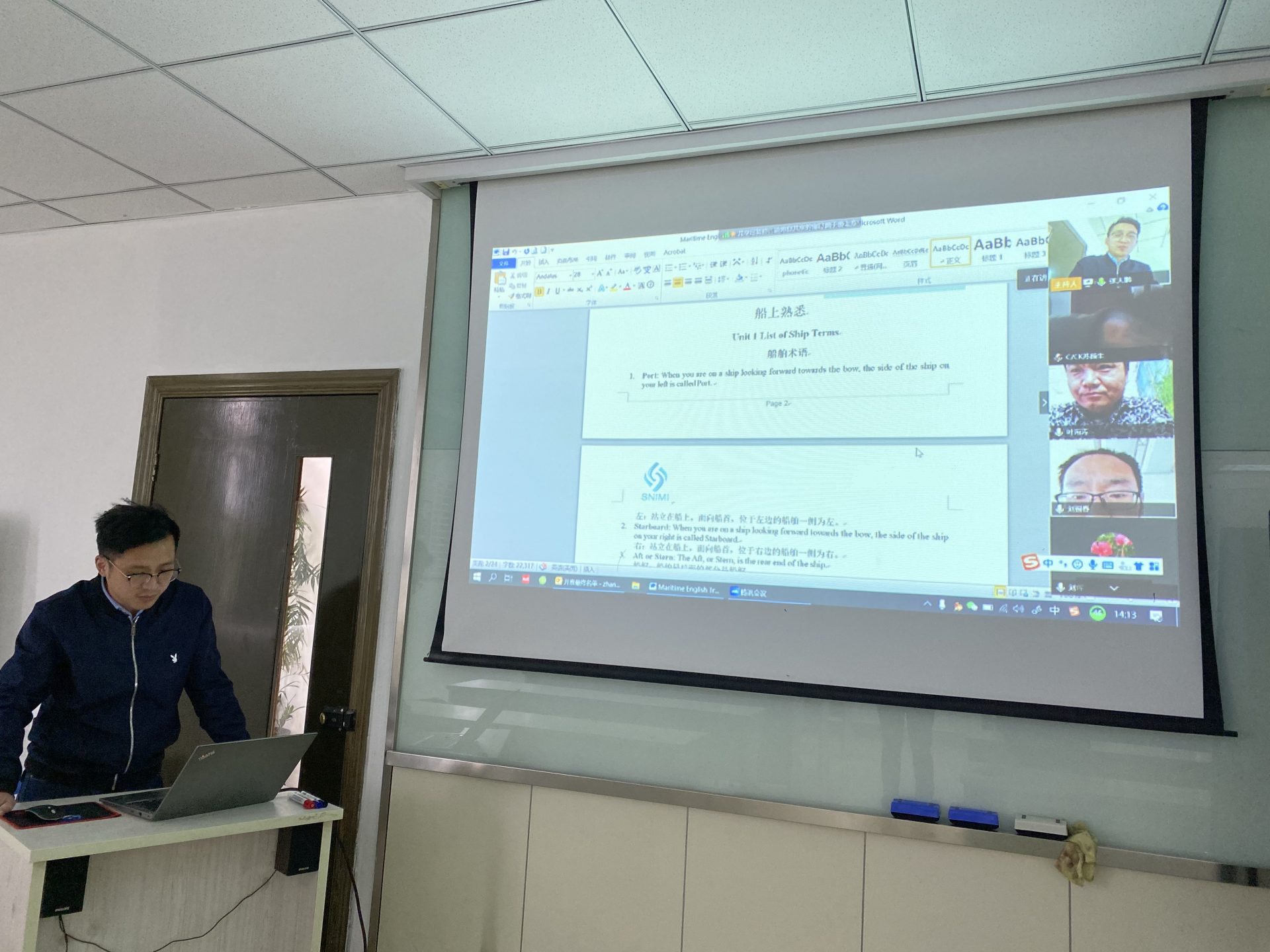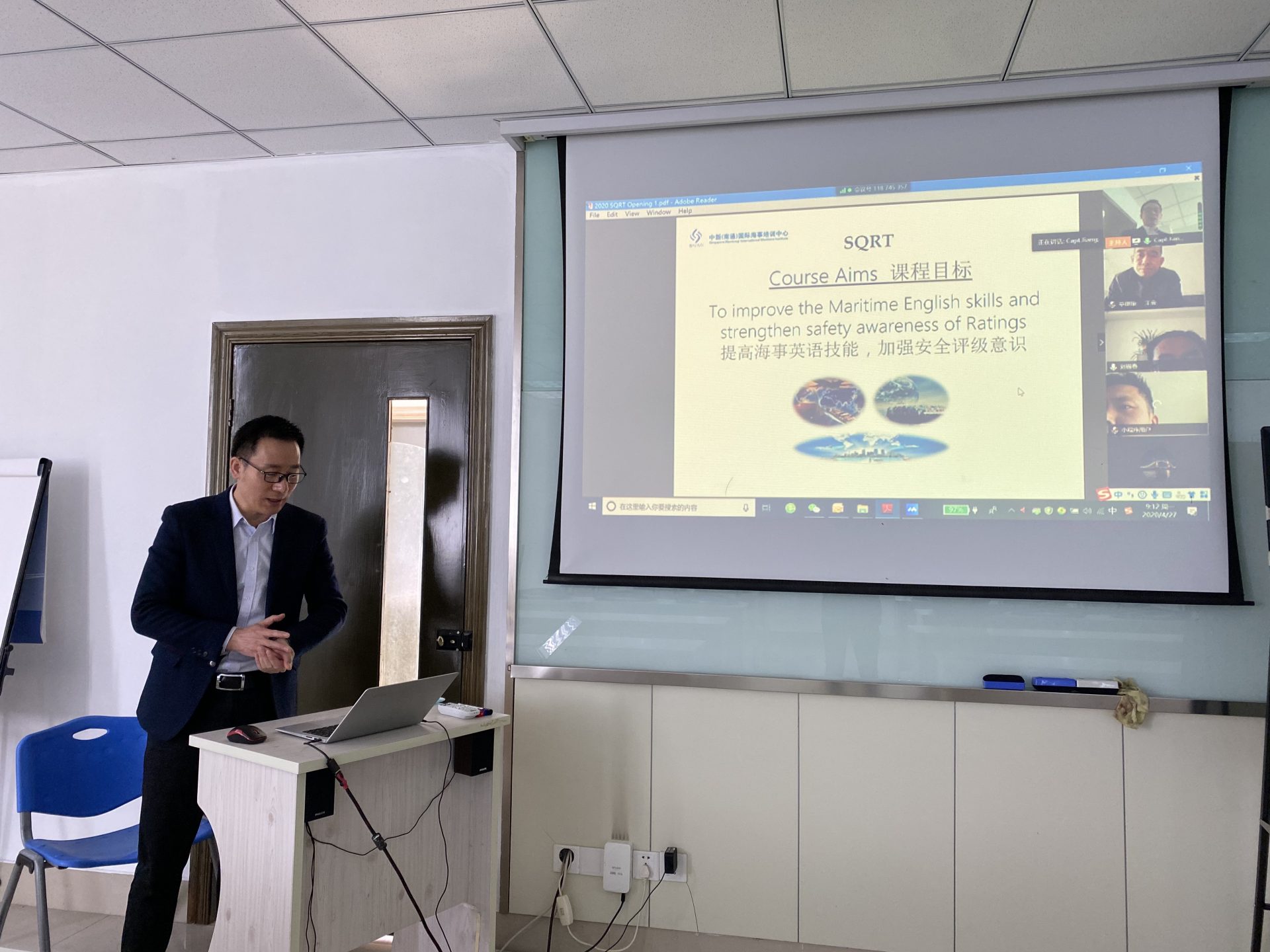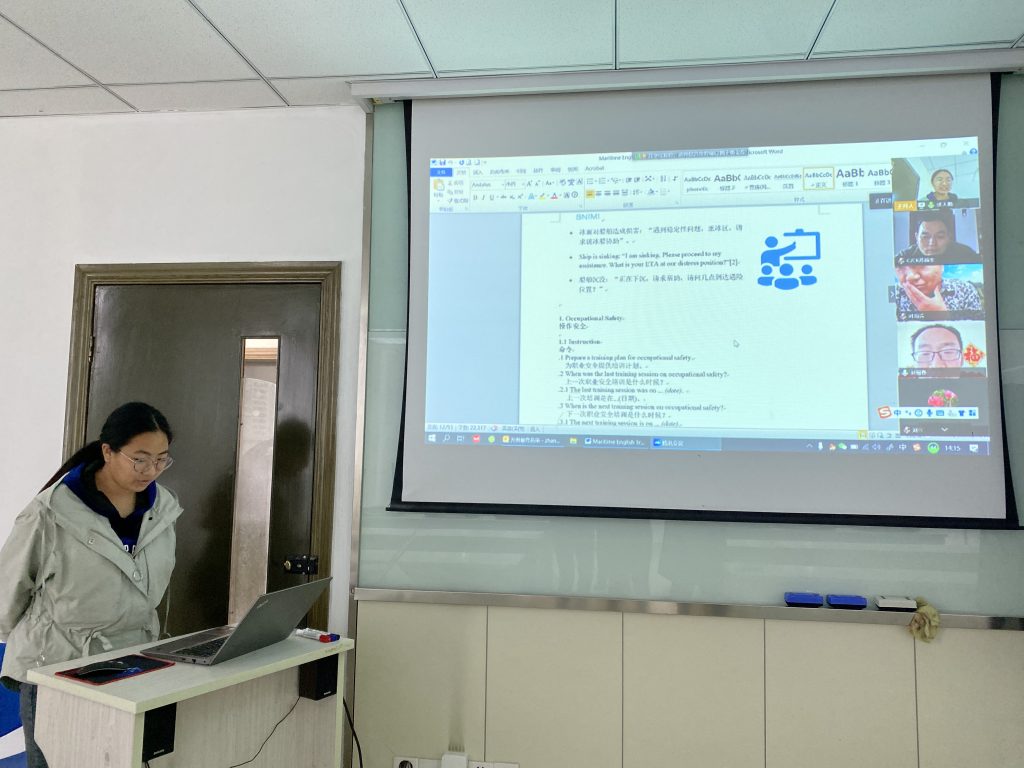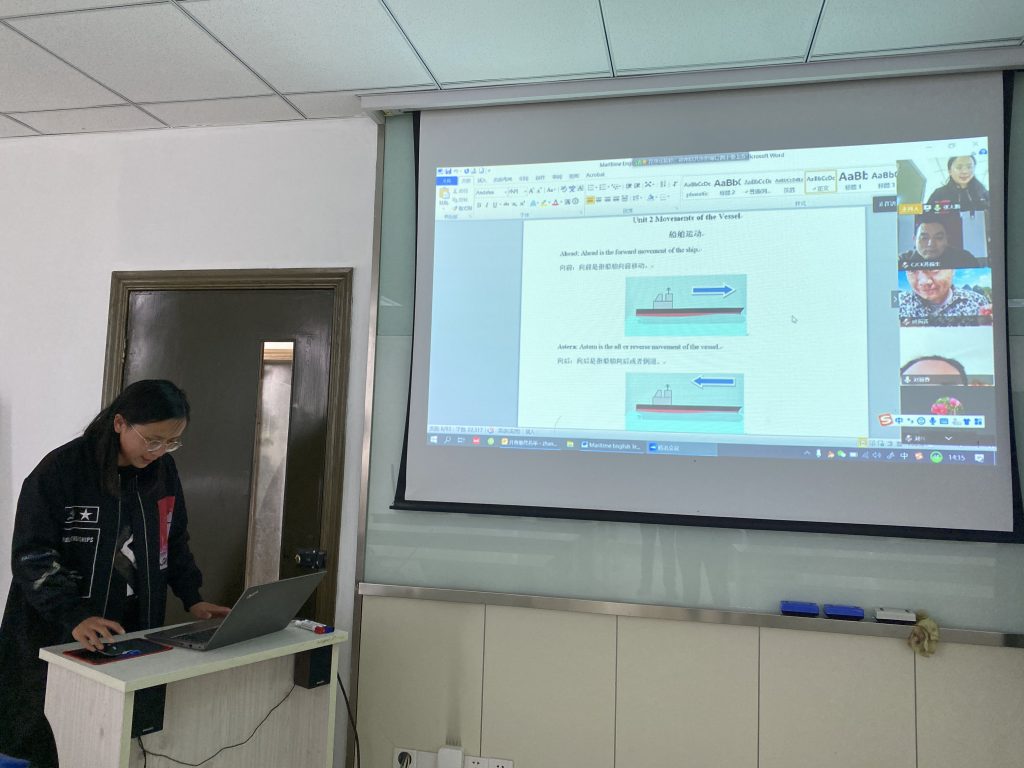Due to the COVID-19 pandemic, the 69th installment of the Seacare Quality Rating Training (SQRT) course, from 27 April to 22 May 2020, was conducted virtually — the first time in Singapore (Nantong) International Maritime Institute’s (SNIMI) history.
Despite the relatively new experience, both conductors and students alike, found the online training highly effective, if not, better. Conductors saw an improvement to student participation as well as students’ ratings increasing from ‘50 to 59’ out of 100 to ‘60 to 69’ and ‘70 to 79’. In similar vein, the 69th SQRT had conductors achieve a stellar overall evaluation score of 4.75 out of 5.
Visit e-Samudra or Issue 1 (20/21) for more stories.

Trainers found that with the online platform, there was greater participation among students.

Captain Jiang


The COVID-19 pandemic has caused chaos and disrupted educational activities across the world. As it will not be pragmatic to let time go by and allow important education to remain stagnant, the educational industry responded by switching to online platforms. Singapore (Nantong) International Maritime Institute (SNIMI) was one such educational player that responded swiftly by using online platforms to conduct its lessons.
From 27 April to 22 May 2020, the 69th Seacare Quality Rating Training (SQRT) course went online for the first time in SNIMI history. Lessons were conducted on campus in Nantong China, while its students participated from their computer or mobile devices in their homes.
So, how effective were the online classes?
Despite the distant learning environment, it remained important to engage the students. SNIMI conducted its online training using Tencent Conference, WeChat video call and group chat. These platforms allowed seamless two-way interactions and were an effective way for trainers to easily monitor students’ attention and concentration.
Attendance was also taken twice a day, once in the morning and once in the afternoon by SNIMI trainers to ensure the ratings’ presence throughout the whole day of training.
An interesting discovery about conducting the lessons online was the increased participation of students. In previous courses, the more enthusiastic or outspoken ratings tend to outshine the more reserved ones during lessons. However, with the online platform, there was greater participation even from students who were more reserved.
During the first week of the course, when the trainers evaluated the ratings, they found that the students had a below average score (50 to 59/100). However, after nearly three weeks into the programme, most of them attained an ‘average’ level (60 to 69/100) with some attaining a ‘good’ rating level (70 to 79/100). Notably, one rating had a ‘very good’ score.
An overall evaluation score indicated that the 15 ratings rated 4.75 out of 5. The evaluation results displayed that the quality of the training was not compromised despite it being conducted online.
The ratings and their families are happy that training can still be done without the need for physical attendance and in the safety and comfort of their homes despite the on-going pandemic. This way, everyone stays safe, no time is wasted and the ratings are ready and prepared for stints on board vessels when the situation improves.
It is all about staying united and learning together in times of crisis.



